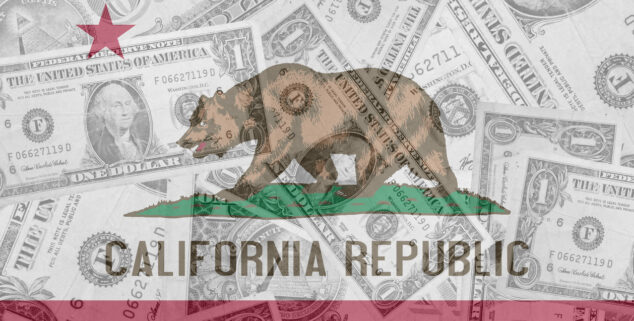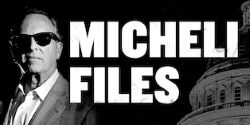News
The roles of LAO and DOF in California’s budget process
 Image by Vepar5
Image by Vepar5The California Legislative Analyst’s Office (LAO), similar to the federal Congressional Budget Office (CBO), serves as the fiscal policy advisor to the Legislature. It has done so for more than 75 years and the LAO is known for its fiscal and programmatic expertise and nonpartisan analyses of the state budget in California. The office serves as the “eyes and ears” for the Legislature to ensure that the executive branch is implementing legislative policy in a cost efficient and effective manner.
 The LAO is overseen by the Joint Legislative Budget Committee (JLBC), a 16-member bipartisan committee comprised of an equal number of Assembly Members and Senators. The LAO has a staff of more than 40 analysts and support staff. The analytical staff cover several budget and policy areas. The office serves as a staff resource to all legislators.
The LAO is overseen by the Joint Legislative Budget Committee (JLBC), a 16-member bipartisan committee comprised of an equal number of Assembly Members and Senators. The LAO has a staff of more than 40 analysts and support staff. The analytical staff cover several budget and policy areas. The office serves as a staff resource to all legislators.
A key responsibility of the LAO is to analyze the annual Governor’s budget and the LAO prepares a series of analyses from the beginning to the end of the budget process on overarching fiscal issues, as well as specific departmental budget proposals and offers its recommendations for legislative action. The LAO’s documents help set the agenda for the work of the Legislature’s fiscal committees in developing a state budget. Staff of the LAO work with the legislative committees throughout the budget process and provide public testimony on the office’s recommendations.
The LAO used to analyze pending legislation. However, due to budget cutbacks, they only analyze the State Budget. They also provide recommendations for legislators on budget reforms. They participate along with DOF staff in all of the budget subcommittees and full committee hearings. The LAO staff testifies on its findings and recommendations when the Assembly and Senate hear the budget bill in budget subcommittees, as well as in the joint budget conference committee. The LAO also prepares the ballot analysis for each measure on the statewide ballot.
In addition, the LAO performs the following functions:
Budget “Control.” The LAO reviews requests by the administration to make changes to the budget after it is enacted. These reviews are used primarily by members of the JLBC and the fiscal committees.
Special Reports. Throughout the year, the office prepares special reports on the state budget and topics of interest to the Legislature.
Initiatives and Ballot Measures. The office estimates the fiscal effect on state and local government of all proposed initiatives (prior to circulation) and prepares analyses of all measures that qualify for the statewide ballot.
Forecasting. The LAO forecasts the state revenues and expenditures.
The LAO provides ongoing reports in the following policy areas:
- Capital Outlay, Infrastructure
- Criminal Justice
- Economy and Taxes
- Education
- Environment and Natural Resources
- Health and Human Services
- Local Government
- State Budget Condition
- Transportation
- Other Government Areas
The LAO provides the following recurring budget reports:
The LAO is an invaluable player in the annual state budget negotiations, working on behalf of the Legislature to ensure that it has all of the data and information it needs to work collaboratively with the executive branch of state government in crafting the most important annual bill enacted by the Legislature.
The Governor’s Department of Finance (DOF), similar to the federal Office of Management and Budget (OMB), serves as the Governor’s chief fiscal policy advisor, and their employees work on issues and programs that are of concern to the Governor, the Legislature, and the people of California.
Those who work at the Department of Finance learn in detail the operations of State government and they help shape public policy and processes in one of the largest economies in the world. These individuals work in the following areas: budgeting, accounting and auditing, information technology, economic and population research, and general administration.
The major area of activity for the DOF concerns California’s budget. In that regard, DOF prepares the following documents:
Proposed, revised, and enacted budgets for the recently enacted fiscal year.
Trailer Bill Language proposed or approved for the recently enacted fiscal year’s budget.
Budget Change Proposals, Finance Letters, and Pro Rata Statewide Cost Allocation Plan (SWCAP)
Historical eBudgets, Historical Budget Publications, Summary Schedules & Historical Charts, and California Budget Information.
Instructions and guidance for departments specifically related to the users of Hyperion.
Multi-year Projection, General Fund Loans and Obligation Report, Fund Condition Statements, Five-Year Infrastructure Plan, Legislative Analyses, and Cash Flow Projection and Management
Detailed data on the actual, approved, and estimated staffing level for each state department for the workload budget.
Budget Analyst Guide, Budget Change Proposals, Hyperion Upload Templates, Budget Forms, Budget Letters, FI$Cal Resources for Budget, Manual of State Funds, State Administrative Manual, Training for Departments, and Uniform Code Manual.
In addition, DOF is responsible for accounting matters for the State, including the responsibility for devising, supervising and maintaining a modern uniform state accounting system; setting statewide fiscal and accounting policies and procedures; and, providing fiscal and accounting training, advice, and consulting services. The statewide fiscal and accounting policies are contained in State Administrative Manual (SAM). DOF maintains a uniform coding system or chart of accounts for accounting, reporting and budgetary purposes and maintains the Manual of State Funds.
DOF also serves as a partner agency in the development, implementation, utilization, and transition to the Financial Information System for California (FI$Cal). Moreover, DOF provides ongoing support and training to departments and it administers statewide programs such as Pro Rata, the Statewide Cost Allocation Plan and the Cash Management Improvement Act.
The following is a summary of important services provided by the Department of Finance:
DOF is charged with setting statewide fiscal and accounting policies and procedures.
DOF provides fiscal and accounting consulting and training services to state departments.
DOF provides FI$Cal resources for accounting staff in the form of classroom training, eLearning courses and query information to assist state departments using the Financial Information System for California (FI$Cal).
DOF identifies and allocates statewide costs to other funds, reports, training, and federal resources.
DOF oversees the Federal Cash Management Improvement Act regulations and state policies for departments receiving federal funds.
Another important role for the DOF is forecasting. In that regard, DOF prepares the following forecasting reports:
Demographic, population, and census data.
Economic forecasts and analyses.
General Fund and special fund tax revenue estimates and tax expenditure reports.
Economic impact review for regulations with costs or benefits exceeding $50 million.
Finally, the Department of Finance prepares reports on matters that have a fiscal impact on California — from the demographic make-up of the people of California; to short and long-term financial plans for infrastructure improvements; to financial audits and performance reviews of state agencies, programs, and projects. The following are some of the regular reports that are provided by DOF:
Delinquent Accounts Receivable Report, Fund reconciliation, Statewide cost allocation and other statewide accounting reports.
Reports that communicate the fiscal integrity of state agencies.
Cash Management, General Fund Loans and Obligation Report, Multi-Year General Fund Budget Projection, and Salaries and Wages Supplement.
Reports that communicate the fiscal integrity of state agencies.
Demographic statistics on the size, distribution, and characteristics of the California population.
Monthly report on state economic and revenue trends.
Finance reports its findings and support position through Bill Analyses. Search for Bill Analyses by Session, House, Bill Number and Date Range.
Government Code sections 13400 through 13407, known as the State Leadership Accountability Act (SLAA), was enacted to reduce the waste of resources and strengthen internal control.
Capital Outlay and Infrastructure Reports, Cap and Trade Investment Plan, California Commission on Disability Access, and Legislative Reports.
The DOF is an invaluable player in the annual state budget negotiations, working on behalf of the Governor to ensure that he or she has all of the data and information needed to work collaboratively with the legislative branch of state government in crafting the most important bill enacted each year.
Want to see more stories like this? Sign up for The Roundup, the free daily newsletter about California politics from the editors of Capitol Weekly. Stay up to date on the news you need to know.
Sign up below, then look for a confirmation email in your inbox.

Leave a Reply